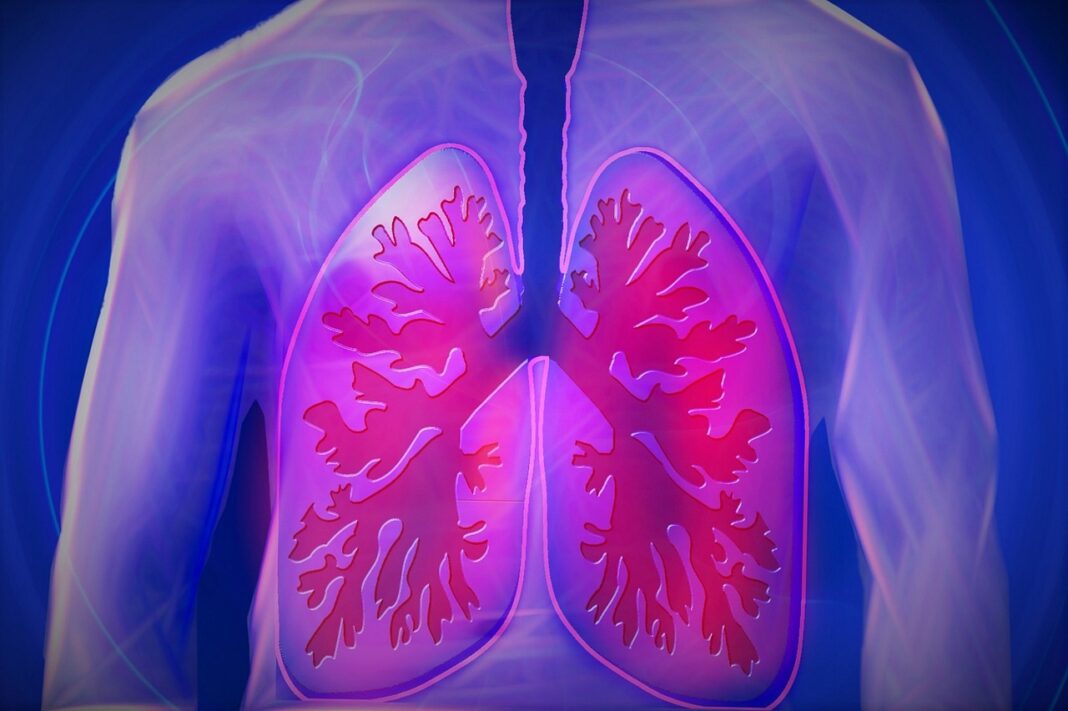Severe gum disease has been linked to the progression of chronic obstructive pulmonary disease, or COPD. However, it is not fully understood how the connection plays out in the immune system. Now, a new study reveals immune system cells that play a key role in the microbial link between COPD and gum disease. Researchers from Sichuan University, in China, report that bacteria associated with gum disease promote COPD through the activation of two types of cells, γδ T cells and M2 macrophages.
The findings are published in mSystems in an article titled, “Periodontitis aggravates COPD through the activation of γδ T cell and M2 macrophage.”
“COPD is a chronic systemic inflammatory disease with high morbidity and mortality,” wrote the researchers. “Periodontitis exacerbates COPD progression; however, the immune mechanisms by which periodontitis affects COPD remain unclear. Here, by constructing periodontitis and COPD mouse models, we demonstrated that periodontitis and COPD could mutually aggravate disease progression. For the first time, we found that the progression was associated with the activation of γδ T cells and M2 macrophages, and M2 polarization of macrophages was affected by γδ T cells activation.”
“By enhancing periodontal therapy and targeting the inhibition of γδ T cells and M2 macrophages [we] may be able to help control the progression of COPD,” said microbiologist Boyu Tang, PhD, who led the study with microbiologist Yan Li, PhD.
Periodontitis is a chronic infectious disease, and previous studies have found that it’s a risk factor for a raft of diseases, including diabetes, hypertension, some cancers, cardiovascular disease, and COPD.
Previous studies, including some led by Li and Tang, have established that the oral bacteria Porphyromonas gingivalis plays an important role in gum disease. For the current study, Li, Tang, and their colleagues used mouse models to show how those bacteria could aggravate progression of COPD. In one experiment, they showed that mice infected with both periodontitis and COPD had worse progression of COPD than mice infected with COPD alone.
In another experiment, they observed that in mice orally infected with P. gingivalis, the bacteria migrated to and infected lung tissue, leading to a significant, observable change in the lung microbiota. Further observations using flow cytometry and immunofluorescence revealed that periodontitis promoted the expansion of the immune cells in the lung tissue. Finally, in experiments using mouse lung tissue, the group connected the dots by showing that P. gingivalis could activate the immune cells, promoting their ability to produce cytokines associated with worsening COPD.
The researchers noted that the decrease in lung function and increase in immune cells was more modest than they’d predicted, but that could be an artifact of the experimental setup. The team created COPD animal models using exposure to cigarette smoke. “If the cigarette smoke exposure could be extended for a longer period of time, these changes might be more pronounced,” Li said. In future studies, Li said that the group plans to investigate how increases in smoke exposure might affect the immune response.
“We’ll further carry out additional studies on human subjects to confirm the mechanism,” Li said. They plan to recruit patients with both conditions and offer periodontitis treatment, then compare lung function and immune cell counts before and after. “Our finding could lead to a potential new strategy for treating COPD.”



